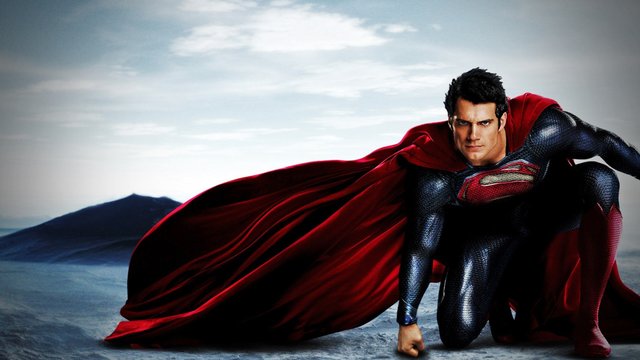Plato’s Just Man And The Man of Steel – A Clash of Heroes

The conflict between Superman’s father, Jor-El, and General Zod ultimately comes down to a dispute about how to best order a society. Jor-El hopes for a society in which the individual is free to pursue his or her interests and calling (“What if a child dreamed of becoming something other than what society had intended? What if a child aspired to something greater?”), a society in which individuals determine their own destinies.
Finally someone who gets the movie. I'm very happy to come across this article. Zack Snyder is the perfect person to make The Fountainhead movie. All three of his superhero movies have been highly philosophical and deep (I'm not counting Jhosstice League as a Snyder movie).
Those who don't know about the book mentioned can read more at https://en.wikipedia.org/wiki/Republic_(Plato)
But there is another way in which The Republic can help us make sense of Man of Steel (and even of Batman v Superman: Dawn of Justice) that might not be as obvious. In Book II, Plato says that a truly just man is bound to be misunderstood and finally killed in this world: he “will be scourged, racked, fettered, will have his eyes burned out, and at last, after all manner of suffering, will be crucified” (in some translations, the word is “impaled”).
This, it seems to me, has been the major theme of Man of Steel and BvS: how the world would really treat a Superman—not just because of his power or his origin, but because of his goodness. As Clark tells Lois Lane, “My father believed that if the world found out who I really was, they’d reject me out of fear. . . I let my father die because I trusted him. Because he was convinced that I had to wait. That the world was not ready. What do you think?” And as Perry White says, “Can you imagine how people on this planet would react if they knew there was someone like this out there?” Well, Plato answered that question for us 2,400 years ago.
MoS and BvS were flawed movies. But they were also great movies. Watchmen on the other hand was a perfect movie. All three movies are realistic movies that put a mirror infront of a society that go to the theater wanting to see and entertaining escape. This was actually best brought up in Sucker Punch which is also a misunderstood masterpiece
.
I have only anecdotal evidence to back this up, but I believe that Plato’s theory has proven true of Superman not only in the universe of Zack Snyder’s movies, but also in real-world fan reaction to Superman. Browse internet discussions of Man of Steel and BvS, and you’ll run into a lot of hatred not just for the films, but for the character of Superman himself. For example, I once heard him characterized as an “over-powered space Jesus” by a fan who professed to prefer Batman because he’s “flawed.” This guy’s attitude seems to typify what a lot of people think about Superman. He’s too good.
Also Read:
https://aclashofheroes.wordpress.com/2016/09/07/what-critics-have-gotten-wrong-about-bvs/
I have seen more than one critic say, “Zack Snyder loves Batman and hates Superman.” I wonder if those critics and I saw the same movie. I would argue that far from being a pro-Batman, anti-Superman movie, BvS is the exact opposite. It’s a repudiation of fans who favor Batman over Superman. Batman fans often criticize Supes by saying that he’s “too powerful” and that he “can’t be brave like Batman because he’s invincible.” If anything, BvS is a rebuke of that kind of talk. It puts those same arguments in Batman’s mouth and shows them to be the hogwash that they are.
Source of shared Link

In the film Jor-El does not agree with Zod, since he only wants to save the fittest, and therefore does not deliver the codex. But paradoxically Jor-El only saves his son. Is it a corrupt or something? I'm on Zod's side only on that occasion.
On the other hand, Jor-El made his son born in a natural way, so that he could have a choice, since in Krypton there was a kind of communist totalitarianism, however, when he sent him to planet earth he eliminated all possibility of election, Because Kal-EL has moral responsibilities and must become superman.
What you say about Plato makes sense to me, but the movie leaves some weak points that I did not understand, maybe I'll have to look at it again.
Man of Steel is a much weaker movie than Watchmen. Jor-El only saving Kal-EL has two reasons. He is kind of the only reasonable voice in Krypton in pretty much every version of the story. It would have been hard to convince and get anybody else involved.
Even more important reason is the natural birth. Everything wrong artificial birth can be seen in Zod. When it is an artificial birth it's like making a carnivore. You are not going untrained its hunting instinct and make it vegan. That's why Zod is doing what he is doing. It is what he was made for. Zod and the rest are practically just NPCs.
For better or worse Kal-EL has a choice. He starts off Tabula Rasa. He is free and he is the new beginning.
If we forget the existence of any DC material other than MoS, Kal-EL is practically brought up to not be superman. Even his father's death was changed from a heart attack to illustrate this point. You could say that after the church scene Kal-EL takes a leap of faith and become "Hope" (The S on the chest)
It's still not Zack Snyder's best work. But it is one of the best superhero movies out there.